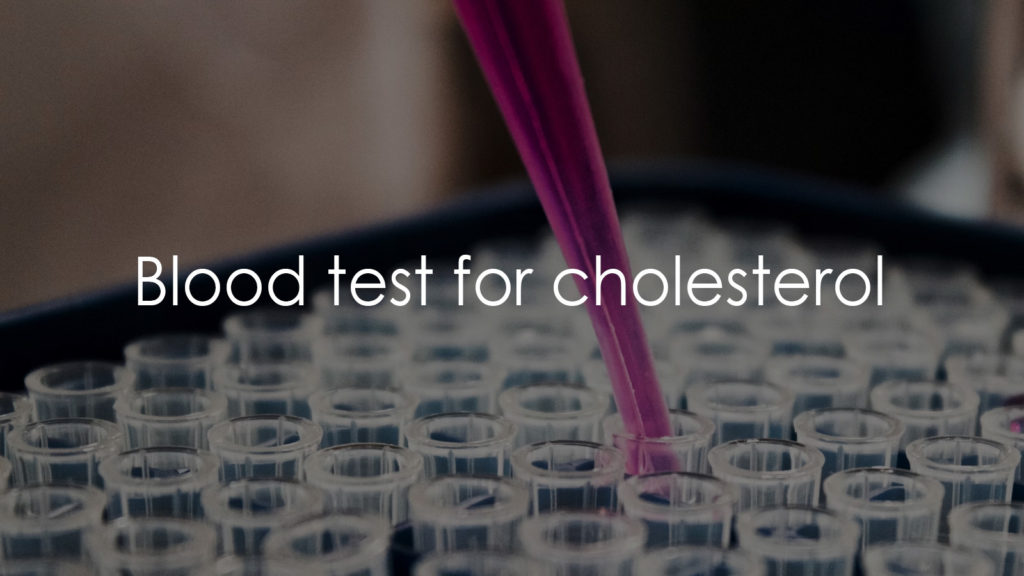Blood test for cholesterol is a crucial diagnostic tool used to evaluate cholesterol levels in the blood. Cholesterol is a fat-like substance essential for the normal functioning of the body, playing a role in the formation of cell membranes, hormone synthesis, and vitamin D production. However, an excess of cholesterol in the blood can lead to cardiovascular diseases. Therefore, monitoring cholesterol levels is vital for the prevention and treatment of various health conditions.

Why is it needed?
Blood test for cholesterol is performed for several reasons:
- Assessing Cardiovascular Disease Risk: High cholesterol levels can lead to atherosclerosis, the buildup of fatty deposits in the arteries, increasing the risk of heart attacks and strokes.
- Monitoring Health Status: Regular cholesterol checks help identify early signs of abnormalities and allow for timely intervention.
- Evaluating Treatment Efficacy: For patients on lipid-lowering medications, the test assesses the effectiveness of therapy and helps adjust dosages as needed.
- Identifying Hereditary Risk Factors: Familial hypercholesterolemia is a genetic condition that causes high cholesterol levels and requires regular monitoring.
- Screening for Risk Factors: These include obesity, diabetes, hypertension, smoking, and a sedentary lifestyle.
Procedure for taking the test
Blood test for cholesterol involves several steps:
- Preparation: Avoid eating for 9-12 hours before the test, as food intake can affect cholesterol levels. Physical exertion and stress should also be avoided before the blood draw.
- Blood Collection: The procedure begins with drawing blood from a vein, usually in the morning. A healthcare professional uses a sterile needle and a special tube to collect the blood.
- Conducting the Tests: The collected blood is sent to a laboratory where total cholesterol, low-density lipoprotein (LDL), high-density lipoprotein (HDL), and triglyceride levels are measured.
Interpretation
Blood test for cholesterol results include several key parameters:
- Total Cholesterol: This includes both «good» (HDL) and «bad» (LDL) cholesterol. A normal total cholesterol level is less than 200 mg/dL. Levels between 200-239 mg/dL are considered borderline high, and 240 mg/dL and above are high.
- Low-Density Lipoprotein (LDL): Known as «bad» cholesterol, LDL can accumulate in the artery walls and cause atherosclerosis. A normal LDL level is less than 100 mg/dL. Levels between 100-129 mg/dL are near optimal, 130-159 mg/dL are borderline high, 160-189 mg/dL are high, and 190 mg/dL and above are very high.
- High-Density Lipoprotein (HDL): Known as «good» cholesterol, HDL helps remove excess cholesterol from the arteries. A normal HDL level is 60 mg/dL and above. Levels less than 40 mg/dL for men and less than 50 mg/dL for women are considered low and increase the risk of cardiovascular disease.
- Triglycerides: These are a type of fat used by the body for energy. High triglyceride levels are associated with an increased risk of cardiovascular disease. A normal triglyceride level is less than 150 mg/dL. Levels between 150-199 mg/dL are borderline high, 200-499 mg/dL are high, and 500 mg/dL and above are very high.
Conclusion
Blood test for cholesterol is an essential tool for assessing cardiovascular disease risk and monitoring overall health. Regular monitoring of cholesterol levels helps identify and prevent potential health issues, as well as evaluate the effectiveness of treatments. Proper interpretation of test results allows healthcare providers to prescribe appropriate treatments and prevent the development of serious complications. Preventing and controlling cholesterol levels play a key role in maintaining cardiovascular health and overall well-being.